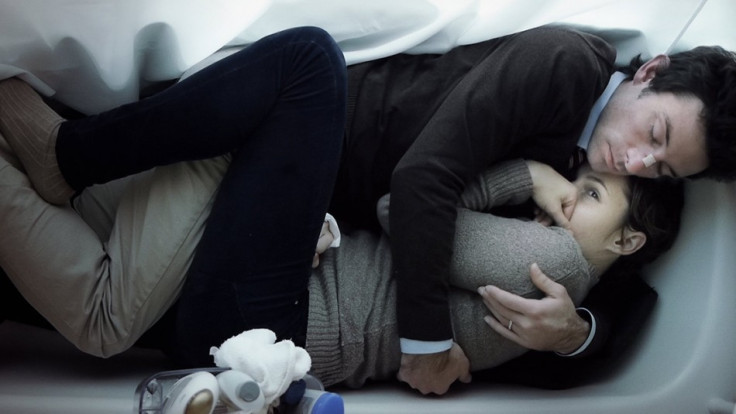Upstream Color: Experimental Science Fiction At Its Best [FILM REVIEW]

It's amazing to think that nine years have passed since writer/director/producer Shane Carruth astonished audiences at Sundance with Primer, a micro-budget science fiction film that dealt with impenetrable detail the intricacies of time travel. A mathematics graduate with a background as an engineer, he was seen as the man to bring a cerebral sensibility to independent cinema. What's most surprising about his long awaited follow-up Upstream Color is that along with the similarly abstruse narrative framework employed is an emotionally engaging love story that feels both genuine and refreshing.
It's hard to summarise the film without giving away spoilers, suffice to say the genre is once again science fiction, with a plot involving genetic mutations and psionics. Maggots, plants, people and pigs all feature in the film that is at its heart a transcendentalist examination of nature, purity and independence. Whilst information is withheld, or certainly obscured, we are carried by the montage of intensely extreme close-ups of people, animals and bacteria; recognising the pattern if not entirely sure the sequence it follows.
After the success of Primer Carruth spent years toiling away on A Topiary, an ambitious CGI science fiction follow-up and major passion project. After struggling for funding and finding no studio was willing to match his vision, he eventually turned instead to writing Upstream Color and admitted to Entertainment Weekly it was, "the thing I basically wasted my whole life on".
It's no coincidence that this opus comes from those wasted years. Centring on a woman called Kris who after a terrible ordeal struggles to get her life back, the sense of frustration Carruth felt clearly bleeds into the character as she battles against her surroundings.
It's a remarkable performance from Indie cinema stalwart Amy Seimitz (The Off Hours, Alexander The Last), channelling with delicacy a pained persona who is acutely and intensely aggrieved. Carruth himself stars alongside her as love interest Jeff, his vapid mumblings matched by her fiery eyes.
Clearly inspired by Eternal Sunshine of the Spotless Mind, here we have two amnesiacs who for reasons beyond their own knowledge find themselves irrevocably drawn to one another. Dialogue is sparse throughout the film as emotions are interpreted through looks and stares, making the interactions between the two ever more intimate.
This all might suggest a sensory overload to the viewer but the script has a clear pattern and sense of direction. Following the classic three-act structure to a certain extent, the first part is mind-numbing mystery thriller, before the film establishes its blissfully bewildering romance. By the time you've become enraptured in the film's cinematic language, you can accept that the final third has no dialogue at all.
But sound is integral to the feature. Carruth has compared watching the movie to listening to an album, and his self-composed soundtrack carries us through the alluring imagery through its symphonic pattern. The diegetic sounds are crucial as well, with the third major character an enigmatic audio engineer who goes about producing the nastiest foley since Berberian Sound Studio.
It all builds up towards a somewhat unfulfilling conclusion, as the distinct worlds and narrative strands presented all come together in a finale that feels too neat and yet at the same time inconclusive. But then after you've sat through 90 minutes of perplexing but utterly absorbing cinema it's inevitable that no attempt at catharsis will feel truly satisfying.
The pure visceral thrill of watching this kind of brave cinematic storytelling is what lingers long in the mind. Whilst Primer made us think, Upstream Color makes us feel. In a decade Carruth has grown as a filmmaker and can now engage our hearts as well as our minds.
© Copyright IBTimes 2025. All rights reserved.






















